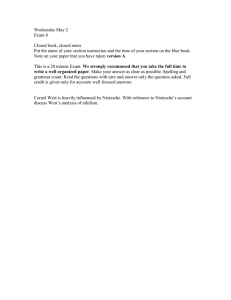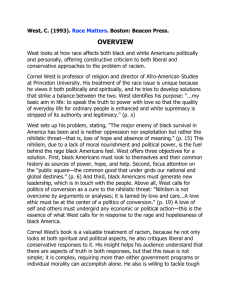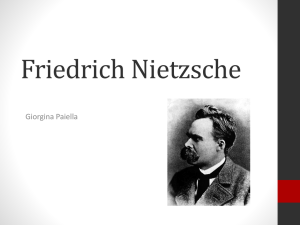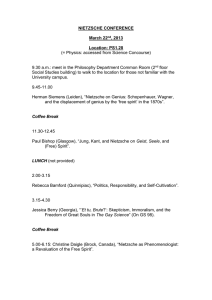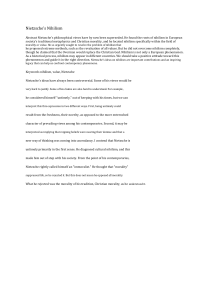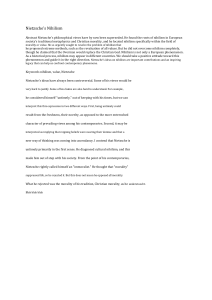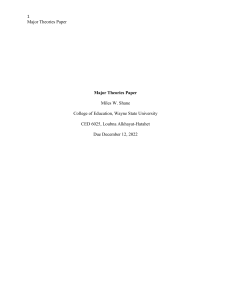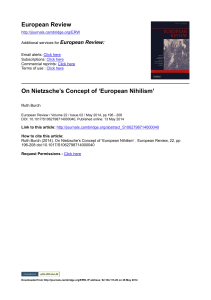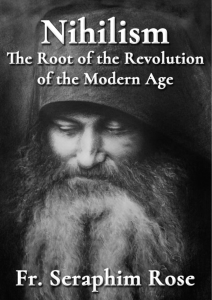The Cornel West Reader
advertisement
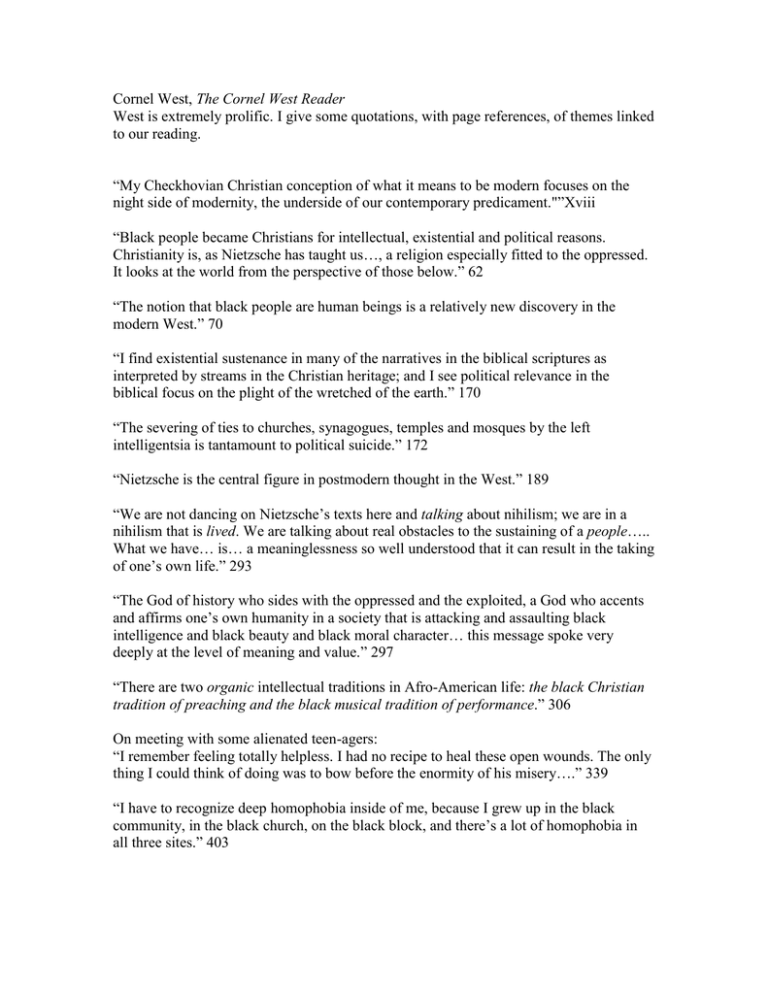
Cornel West, The Cornel West Reader West is extremely prolific. I give some quotations, with page references, of themes linked to our reading. “My Checkhovian Christian conception of what it means to be modern focuses on the night side of modernity, the underside of our contemporary predicament."”Xviii “Black people became Christians for intellectual, existential and political reasons. Christianity is, as Nietzsche has taught us…, a religion especially fitted to the oppressed. It looks at the world from the perspective of those below.” 62 “The notion that black people are human beings is a relatively new discovery in the modern West.” 70 “I find existential sustenance in many of the narratives in the biblical scriptures as interpreted by streams in the Christian heritage; and I see political relevance in the biblical focus on the plight of the wretched of the earth.” 170 “The severing of ties to churches, synagogues, temples and mosques by the left intelligentsia is tantamount to political suicide.” 172 “Nietzsche is the central figure in postmodern thought in the West.” 189 “We are not dancing on Nietzsche’s texts here and talking about nihilism; we are in a nihilism that is lived. We are talking about real obstacles to the sustaining of a people….. What we have… is… a meaninglessness so well understood that it can result in the taking of one’s own life.” 293 “The God of history who sides with the oppressed and the exploited, a God who accents and affirms one’s own humanity in a society that is attacking and assaulting black intelligence and black beauty and black moral character… this message spoke very deeply at the level of meaning and value.” 297 “There are two organic intellectual traditions in Afro-American life: the black Christian tradition of preaching and the black musical tradition of performance.” 306 On meeting with some alienated teen-agers: “I remember feeling totally helpless. I had no recipe to heal these open wounds. The only thing I could think of doing was to bow before the enormity of his misery….” 339 “I have to recognize deep homophobia inside of me, because I grew up in the black community, in the black church, on the black block, and there’s a lot of homophobia in all three sites.” 403 “Martin Luther King, Jr., was the most significant and successful organic intellectual in American history.” 426 “The black church put forward perspectives that encouraged both individuality and community fellowship, personal morality and antiracist political engagement, a gracecentered piety and a stress on Christian good works.” 428 “The trauma of the slave voyage from Africa to the New World and the Euro-American attempt systematically to strip Africans of their languages, cultures and religions produced a black experience of the absurd.” 435 “Black people do not attend churches, for the most part, to find God, but rather to share and expand together the rich heritage they have inherited…. The common black argument for belief in God is not that it is logical or reasonable, but rather that such belief is requisite for one’s sanity and for entrée to the most uplifting sociality available in the black community.” 437 “Afro-American Christianity promotes a gospel that empowers black people to survive and struggle in a God-forsaken world.” 439 “As a philosopher, I’m fundamentally concerned with how we confront death, dread, despair, disappointment and disease.” 543
